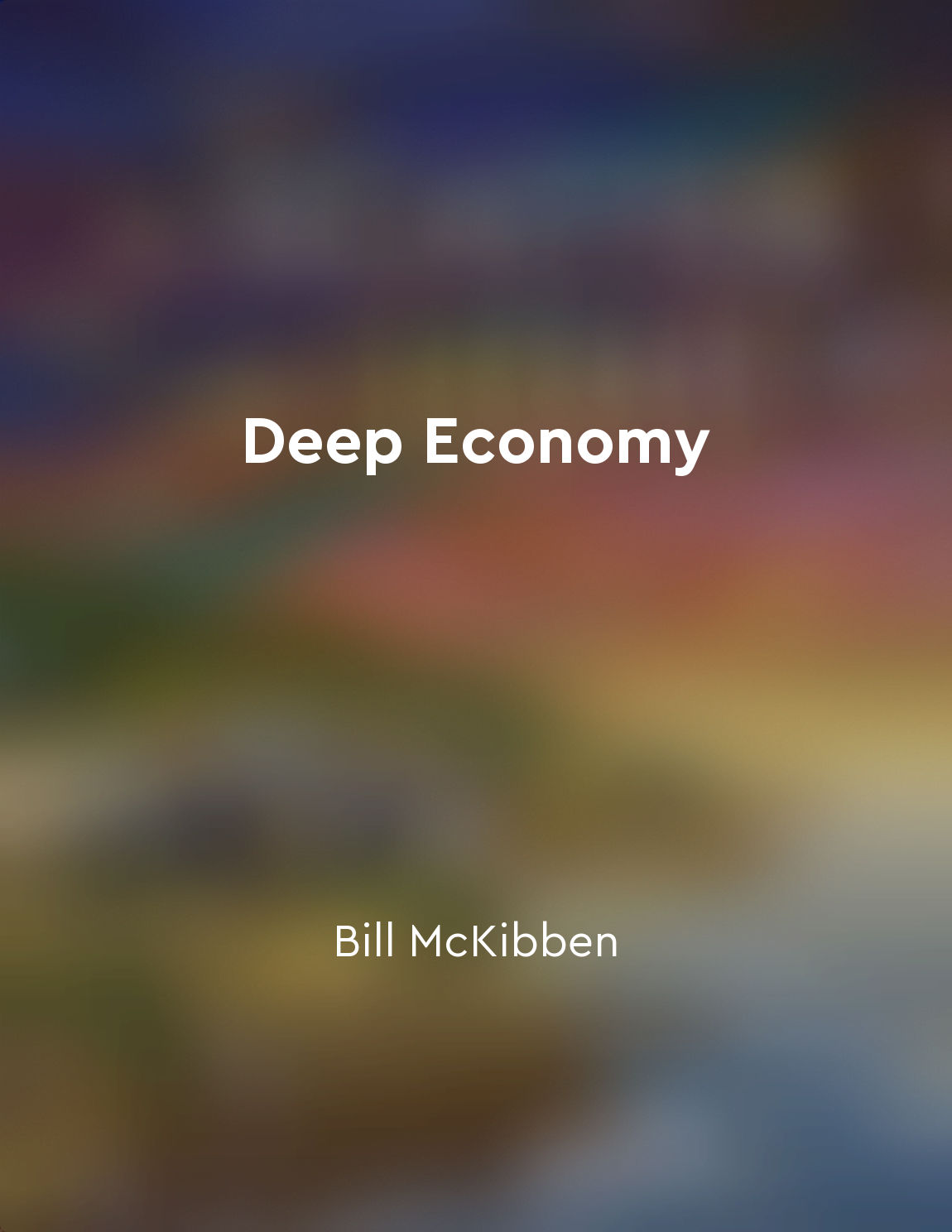Gross domestic product is not a measure of wellbeing from "summary" of Deep Economy by Bill McKibben
The idea that gross domestic product (GDP) can accurately measure the wellbeing of a society is deeply flawed. GDP simply measures the total monetary value of goods and services produced within a country's borders. It does not take into account many other important factors that contribute to the overall wellbeing of a society. For example, GDP does not consider the distribution of wealth within a society. Even if a country's GDP is growing, it does not necessarily mean that the benefits are being felt by all members of society. In fact, GDP growth often exacerbates income inequality, leading to a situation where a small percentage of the population reaps all the rewards while the majority struggles to make ends meet. Moreover, GDP does not take into account the depletion of natural resources or the negative impacts of economic growth on the environment. As we continue to prioritize GDP growth above all else, we are consuming resources at an unsustainable rate and causing irreversible damage to the planet. This short-sighted focus on economic growth at all costs is not conducive to long-term wellbeing. In addition, GDP does not measure the quality of life or the overall happiness of a society. It does not consider factors such as health, education, social cohesion, or the sense of community. These are all essential components of wellbeing that cannot be captured by a single economic indicator.- Relying solely on GDP to measure the wellbeing of a society is limiting and misleading. We must look beyond monetary value and consider a more holistic approach that takes into account the full range of factors that contribute to a truly prosperous and sustainable society. By shifting our focus away from GDP and towards a more comprehensive measure of wellbeing, we can create a more equitable, resilient, and fulfilling world for all.


